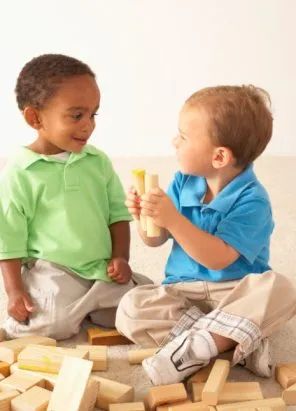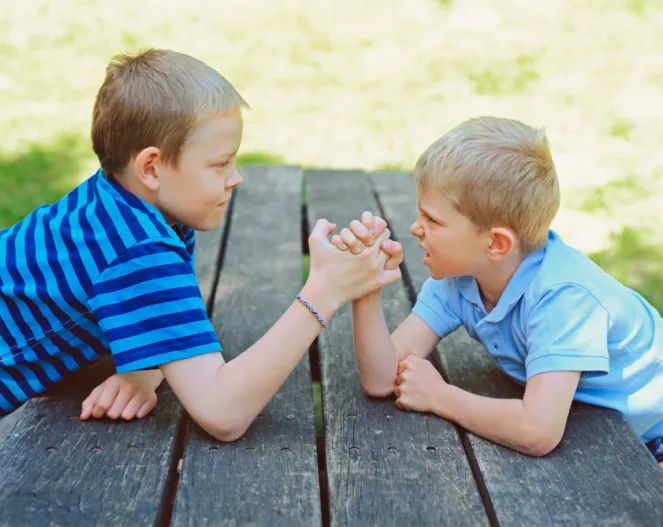Seven Helpful Tips for Teaching Social Skills

Ask any parent why they think preschool is important and you’ll probably hear “socialization” listed among the highest priorities--and with good reason. It’s very important for children to develop social skills, especially in the first six years of life. But it isn’t enough for the child to simply “be around” other children. Good social skills, including basic manners, etiquette, problem solving, emotional control, and patience, must be taught as deliberately as reading or math. That is why “grace and courtesy” lessons are an integral part of the Montessori classroom.
“…we must begin our work by preparing the child for the forms of social life, and we must attract his attention to these forms.” ~ Dr. Maria Montessori, The Montessori Method
“Grace and courtesy” refers to a specific set of lessons designed to help children interact politely with one another and with adults. It’s more than just learning to say, “please” and “thank you” (important though that is). It’s about giving children the tools they need to interact with kindness and confidence. Here are some examples:
- Greetings--
- Shake hands (if customary)
- Greet with words, i.e. “Good morning”
- Eye contact
- Table manners--

- Chew with mouth closed
- Ask politely for items to be passed instead of reaching across the table
- Use “yes, please” or “no, thank you” when something is offered
- How to use utensils
- Use napkins
- Compliments--
- Give compliments appropriately

- Receive compliments graciously

- Apologizing--
- Acknowledge one’s mistakes
- Apologize with sincerity
- Make amends when possible
- Asking for help--
- Approach/ make eye contact
- Wait patiently if the person is speaking to someone or otherwise engaged
- Don’t interrupt
- Use “please” and “thank you”
- Emotions--


- Use words instead of actions
- Identify the emotion
- Develop the vocabulary to express feelings
- Group Behavior--
- Speaking in turn, raise hand when appropriate
- Listening when others speak
- Respecting personal space
- Sharing
- Self-control
- Use an “indoor” voice
In Montessori classrooms, children learn how to be courteous, polite, and respectful according to their local culture. At home, parents can teach social skills by demonstrating courteous behavior and guiding children through the practices of grace and courtesy.
“What is social life if not the solving of social problems, behaving properly and pursuing aims acceptable to all? sitting side by side and hearing someone else talk…” ~ Dr. Maria Montessori, The Absorbent Mind




















